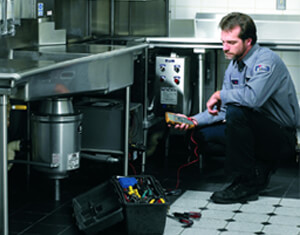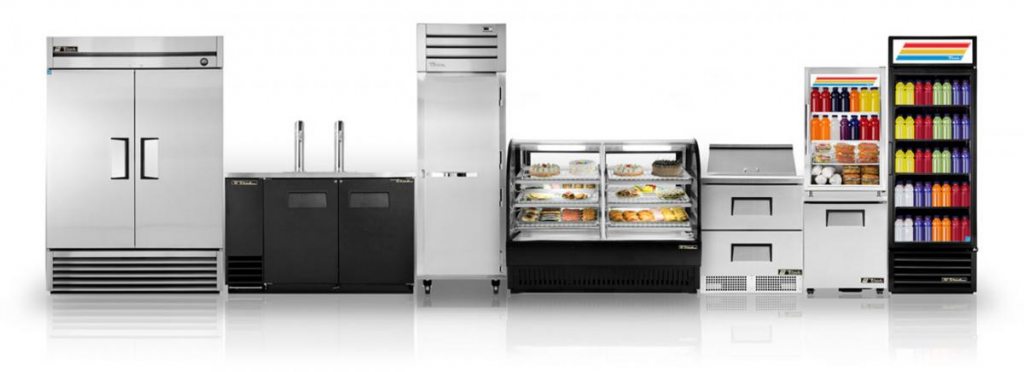Vital Tips for Effective Ref Repair Work to Expand Appliance Lifespan
When it comes to your fridge, proper repair work and maintenance are essential for longevity. Understanding usual troubles and understanding when to act can make all the difference.
Understanding Common Fridge Problems
Fridges are important in keeping your food fresh, but they can run into a series of typical issues that disrupt their performance. One regular problem is inadequate air conditioning. If you notice food spoiling quicker than common, check the thermostat setups or take into consideration if the door seals are damaged. An additional typical issue is too much sound, which could show a malfunctioning compressor or a falling short fan. You may additionally experience water pooling inside or underneath the refrigerator; this commonly arises from a clogged defrost drain or a damaged water line. Furthermore, if your refrigerator's light isn't functioning, maybe a simple bulb problem or a problem with the door button. Ice build-up in the fridge freezer can impede air flow and cooling efficiency. Identifying these problems early can save you money and time in repairs, guaranteeing your refrigerator runs smoothly and successfully.
Routine Maintenance Practices
To maintain your appliances running efficiently, you need to remain on top of normal upkeep practices. Clean the condenser coils, check the door seals, and keep track of the temperature setups to guarantee peak efficiency. These straightforward jobs can save you money and time on repair services down the line.
Clean Condenser Coils On A Regular Basis
Cleaning your condenser coils routinely can greatly boost your home appliance's efficiency. Dirt and dust construct up on these coils over time, triggering your appliance to function harder and take in more energy. To keep them clean, unplug your device and thoroughly eliminate any kind of protective covers.
Inspect Door Seals
3 straightforward actions can help you ensure your home appliance's door seals remain in excellent condition. Evaluate the seals regularly for any splits, splits, or indicators of wear. These problems can result in air leaks, influencing effectiveness. 2nd, tidy the seals making use of warm, soapy water to remove any kind of particles or gunk. A tidy seal ensures a tight fit and much better efficiency. Carry out a basic test by closing the door on a piece of paper. If you can easily draw it out without resistance, the seal could require changing. By following these actions, you'll keep your home appliance's effectiveness and durability, conserving you cash on power bills and repairs in the lengthy run.
Display Temperature Level Settings
Consistently checking your device's temperature settings is important for ideal efficiency and performance. Use a thermometer to check these setups frequently, especially after significant adjustments, like moving your appliance or readjusting the thermostat. By remaining positive concerning temperature tracking, you'll assure your home appliances run efficiently and last much longer.
Troubleshooting Cooling Concerns
When your refrigerator isn't cooling down properly, it can lead to spoiled food and lost money, so addressing the issue quickly is vital. Begin by inspecting the temperature setups to validate they're at the suggested degrees, typically around 37 ° F for the refrigerator and 0 ° F for the fridge freezer. If the setups are appropriate, examine the door seals for any kind of voids or damages; a defective seal can permit warm air to go into.
Following, analyze the vents inside the fridge and freezer. Validate they're not obstructed by food items, as this can disrupt air movement. Listen for the compressor; if it's not running or making uncommon noises, it might need attention. Lastly, check the condenser coils, generally situated at the back or base of the device. Dust and particles can build up, creating cooling down issues. Tidy them with a vacuum or brush to maximize performance. If troubles persist, it could be time to call a specialist.
Fixing Water Leakage and Ice Build-Up
If you're handling water leak or ice build-up in your device, it's important to identify the resource of the trouble. By determining where the water is coming from, you can avoid further concerns and prevent pricey repair services. Allow's check out some effective methods to tackle these common problems.
Recognize Leak Resources
Exactly how can a knockout post you successfully determine the sources of water leak and ice accumulation in your home appliances? Start by evaluating the seals and gaskets on your refrigerator and fridge freezer doors. A used or damaged seal can permit warm air to enter, triggering condensation and ice. Next, inspect the drainpipe pan and water drainage system for blockages or clogs; a backed-up drainpipe can result in water pooling. Seek any kind of loosened links in the supply of water line, which can produce leaks. Also, analyze the defrost drain for ice build-up, which might interfere with proper drain. By methodically checking these locations, you'll pinpoint the resource of the trouble, allowing you to take the required actions to fix it and prolong your device's life-span.
Protect Against Ice Formation
To avoid ice development in your devices, begin by validating the temperature level settings are ideal. If your refrigerator or fridge freezer is also cold, it can result in too much ice accumulation. Examine the door seals routinely; harmed seals can allow cozy air in, causing condensation and ice formation.
Keep the appliance well-ventilated and stay clear of congestion, as this can obstruct air flow - Who Repairs Dryers in Oro Valley? Dependable Refrigeration & Appliance Repair Service. Routinely defrost your fridge freezer if it doesn't have an automated defrost attribute.
If you observe water leak, determine and take care of any type of obstructed drain openings, as they can add to ice buildup. Lastly, clean the coils and verify they're operating effectively to keep peak efficiency. Taking these steps will assist extend your home appliance's lifespan and performance.
Dealing With Noisy Refrigerator Appears
While it might seem disconcerting, a loud fridge often indicates small issues rather than major malfunctions. Usual culprits include the compressor, fans, and water lines.
Next, check for loose products inside. Occasionally, containers or shelves can rattle, creating unwanted noise. Tighten or reposition them to eliminate the noises.
If you observe a clicking noise, it may be the defrost timer. This is normally safe however can indicate it requires inspection.
Lastly, validate your refrigerator is degree. An out of balance home appliance can produce resonances and noise. Utilize a degree to check, and adjust the feet if needed. Attending to these concerns without delay can assist preserve your refrigerator's performance and prolong its lifespan.
When to Change Components vs. Full Replacement

Nonetheless, if your home appliance is older and experiencing several problems, a full substitute might be much more cost-effective. Think about the price of fixings versus the home appliance's worth. If repairs surpass 50% of a brand-new system's price, it's usually better to buy a substitute. In addition, if you discover recurring issues that keep recurring, it's an indicator that your device has gotten to completion of its life. Weigh these factors carefully to make the most effective choice for your needs and spending plan.
Recognizing When to Call a Professional
How can you tell when it's time to call in an expert for appliance repair work? If you notice uncommon noises, smells, or leaks, it's a clear signal that something's incorrect. Don't disregard these indications; they usually indicate deeper concerns. If your home appliance quits working altogether or often journeys circuit breakers, it's another warning.
You ought to additionally consider your very own convenience level with repair services. If you're unsure about identifying the issue or lack the right tools, it's best to connect for assistance. Keep in mind, attempting challenging fixings can result in more damage or perhaps safety and visit our website security hazards.

Often Asked Questions
Just how Commonly Should I Clean the Refrigerator Coils?
You need to clean your refrigerator coils every six months. This helps preserve effectiveness and stops getting too hot. If you notice too much american fridge freezer repairs near me dust or pet hair, tidy them much more frequently to guarantee your refrigerator runs smoothly.

Can I Utilize Vinegar for Cleansing My Refrigerator?
Yes, you can use vinegar to clean your refrigerator! It's an outstanding natural cleaner that removes odors and stains. GE appliance repair Oro Valley Dependable Refrigeration & Appliance Repair Service. Simply blend it with water, apply it to surfaces, and wipe down for a fresh, clean refrigerator
What Temperature level Should My Refrigerator Be Set To?
You must establish your refrigerator to 37 ° F(3 ° C) for excellent food preservation. This temperature keeps your food fresh while preventing perishing, ensuring your groceries last longer and reducing waste. It's a very easy modification you can make!
Does a Refrigerator Required to Be Leveled?
Yes, your fridge needs to be leveled. If it's unequal, it can impact cooling performance and trigger excess sound. Check the leveling legs and readjust them to guarantee proper balance for perfect performance.
Exactly How Can I Decrease Fridge Energy Consumption?
To minimize your fridge's power consumption, maintain it tidy and well-ventilated, inspect door seals for leakages, set the temperature in between 35-38 ° F, and avoid straining it. These steps can considerably decrease your energy bills.